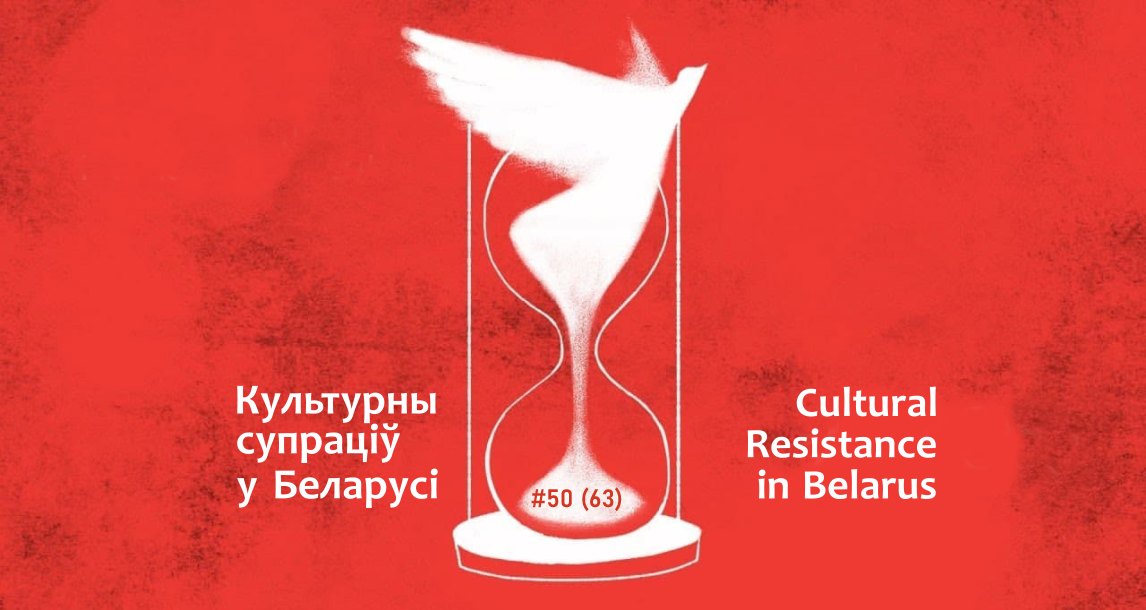
Download the pdf-version of issue 63 of Cultural Resistance Monitoring
Persecution, Convictions, Censorship, Cultural Policy
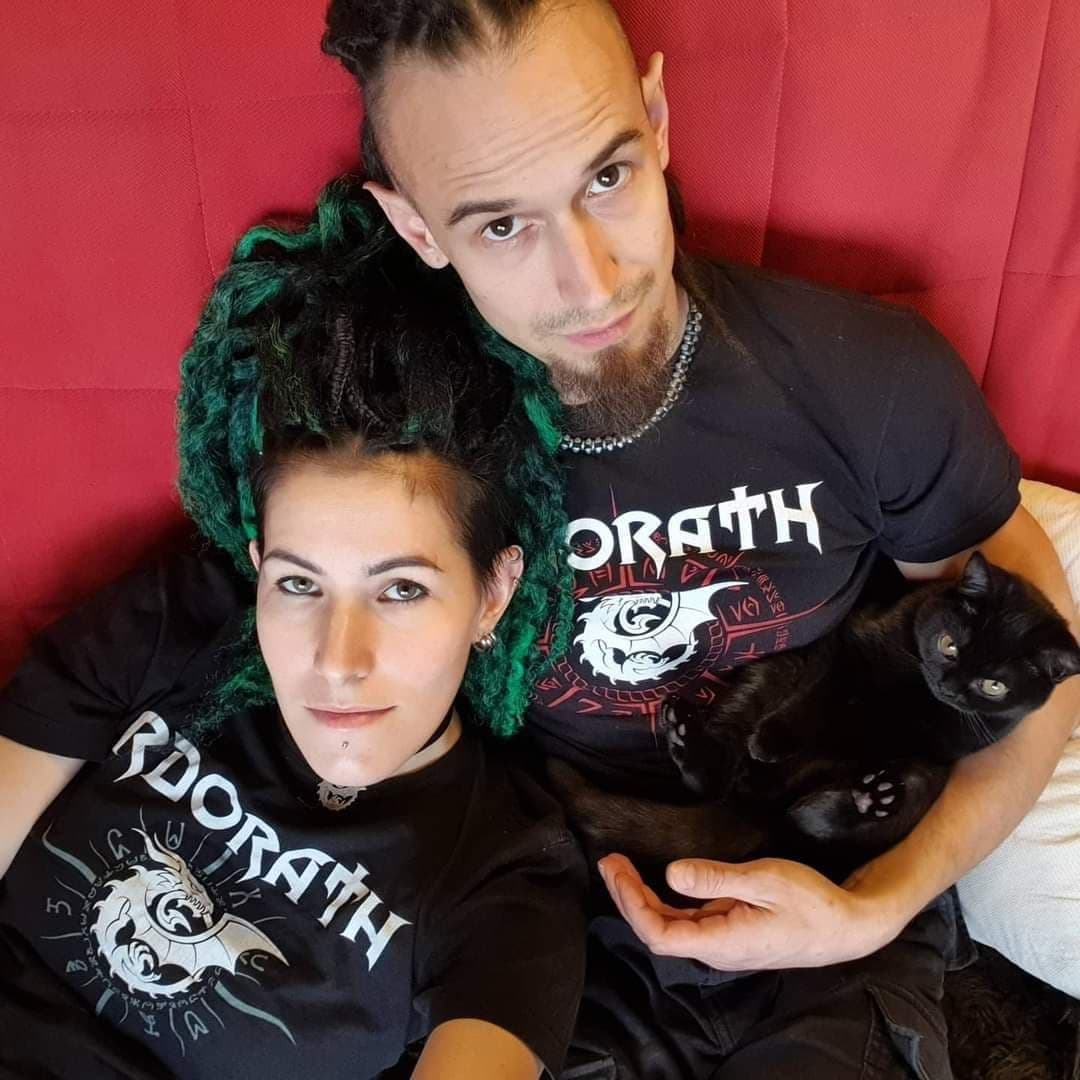
Nadzieja and Uładzimir Kałač, leaders of the Irdorath band, were sentenced to 2 years in prison for participating in peaceful protest marches by judge Alaksandr Jakunčychin, the state prosecutor – Volha Jemieljančanka. Nadzieja and Uładzimir were accused of “organizing and preparing actions that grossly violate public order and training or other training of persons to participate in such actions, as well as financing or other material support of such activities”. Three other musicians from Irdorath, detained on August 2 — Piotr and Julija Marčanka and Anton Šnip — remain in jail awaiting their trial.
Andrej Pałupanaŭ, founder of the Minsk film school-studio, had his home searched on December 16.
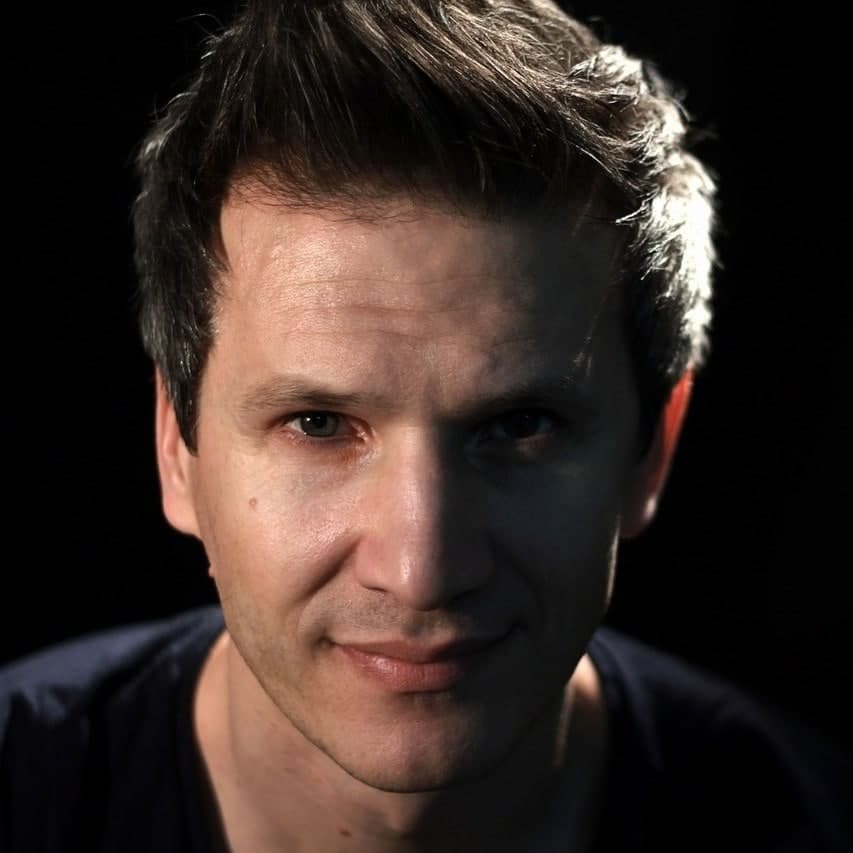
On the morning of December 16, Halina Ciarenćjeva, a teacher of solfeggio and music literature at the local Children’s School of Arts, was detained at work in Masty, Belarus. According to Halina herself, she was detained for a “picture on Facebook”.
On December 15, 2D artist Halina Siemiečka was detained. In the “repentant video” Halina “confessed” she followed “extremist” telegram channels, participated in protests and blocked roads in August 2020. According to Telegram channels her husband was detained as well.
Pavieł Biełavus, manager of the cultural space and souvenir shop Symbal.by, was not released after the second term behind bars. On December 17, he was sentenced to another 7 days of imprisonment under the “petty hooliganism” article. Pavieł has already spent more than a month behind bars.
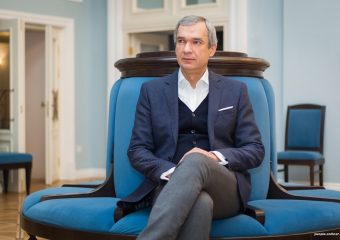
Pavieł Łatuška, a politician and former Minister of Culture, as well as the head of the Janka Kupała National Academic Theater, who had to leave Belarus, is facing another criminal case for “Excess of power or official authority” and “large scale” damage to the state. In 2012, Łatuška (Minister of Culture at the time) instructed to include “a number of anticipatorily non-demanded film projects” in the thematic plan for the film production that was funded by state budget. This includes the film In the Fog by Siarhiej Łaźnica, based on the story of the outstanding Belarusian writer Vasil Bykaŭ.
According to media, Alaksandr Bahdanaŭ (Papa Bo), art manager and DJ, and Maksim Kruk, set designer, were sentenced by judge Maryna Klimčuk to 3 years in open air prison on December 17. They were detained on September 2 after a search and charged with “participating in actions that grossly violate public order”.
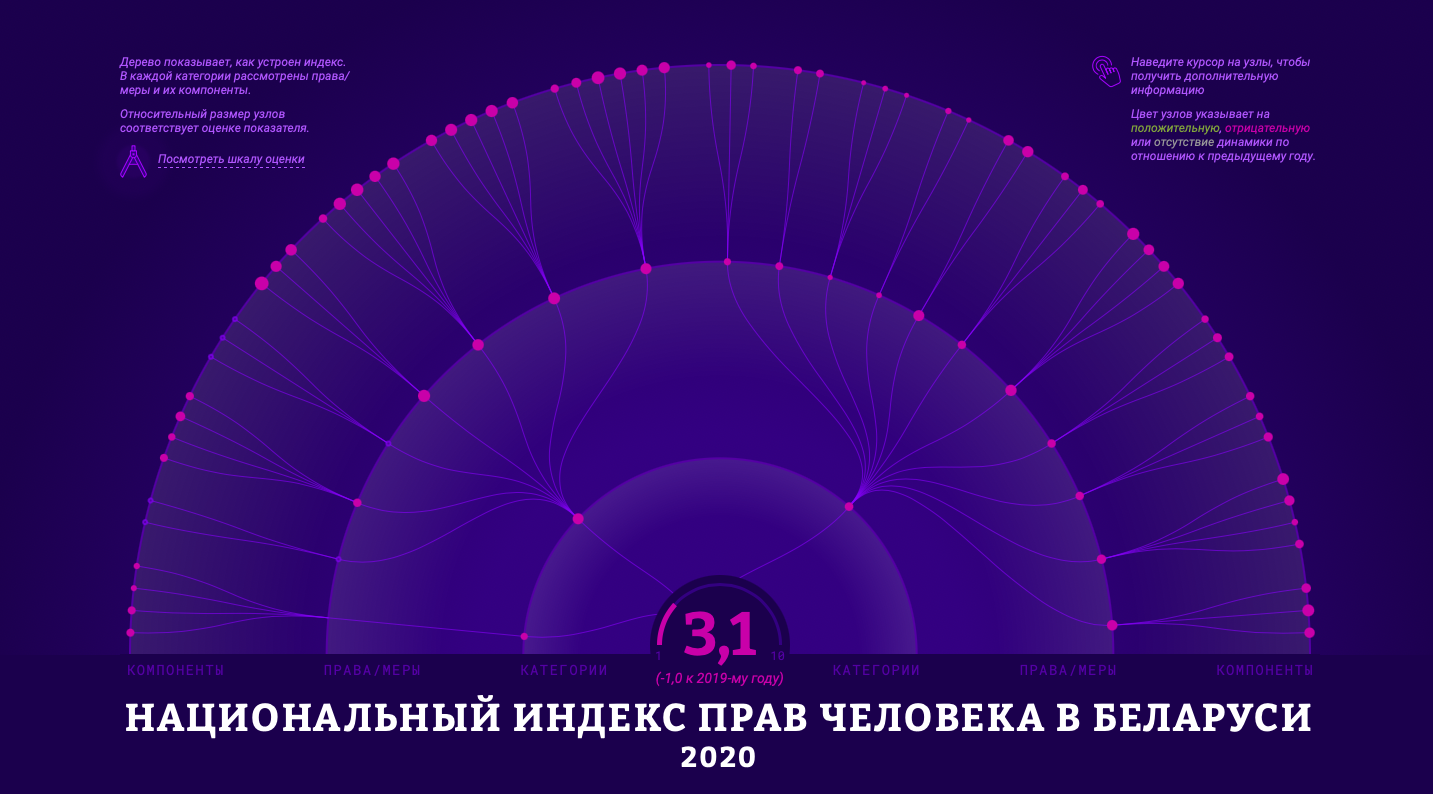
According to the index of the Belarusian Helsinki Committee, the assessment of the right of Belarusians to participate in cultural life is 2.8 out of 10. The assessment has the following components:
⁃ Participation in cultural life – 2.7;
⁃ Access to cultural life – 3.5;
⁃ Possibility to contribute to cultural life – 2.3;
⁃ Protection of cultural diversity – 2.6.
Experts of PEN Belarus participated in assessing the state of the Belarusians’ right to take part in cultural life.
Life of the Imprisoned People

Ihar Bancer, a political prisoner and musician’s solitary confinement was supposed to end on December 15 and he was to be released on December 17. However, on December 16 it became known that his punishment by solitary confinement was extended until the day of his release. People who served their time in open air prison together with the musician believe that the reason could be that Bancer’s solitary confinement was in a detention center 30 kilometers from the open air prison. If the musician had been released from solitary confinement, he would not have been considered a prisoner and would have had to get to open air prison for his things on his own. On December 17, Ihar was released.
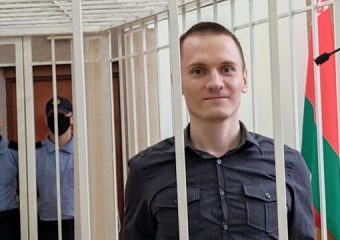
The administration of the Mahiloŭ prison pressures Mikałaj Dziadok, a political prisoner, activist and writer, by filing reports for “violations” he did not commit. Mikałaj is also denied medical care.
Andrej Piatroŭski, a political prisoner and teacher of history and social studies, sent a list of books he considers noteworthy from behind bars: the list includes Uładzimir Karatkievič, Uładzimir Arłoŭ, Leanid Dajnieka, Francišak Alachnovič and others.
Dissent and Cultural Activism
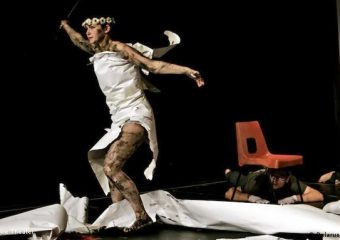
Belarusians Iryna Paŭłovič and Antoś Sivych have moved to Łódź, Poland and made a film Through the Rails about Belarusian students who experienced the same road from Belarus to Poland.
The Belarus Free Theater led by Mikałaj Chalezin and Natalla Kalada has moved to Poland, where it will continue its work.
Taćciana Vadałažskaja, coordinator of the Flying University’s programs, and Maryja Martysievič, translator, poet, essayist, literary critic and former member of PEN board, discussed the results of the literary year in the What was it? Show: the explosion of creativity in 2020-21, the phenomenon of prison art and the work of the repressed, as well as the world’s interest in the Belarusian culture.
https://www.youtube.com/watch?v=dZ4KAKoZU4o
Lavon Volski and Marharyta Laŭčuk presented an animated video for the song Pałon (Belarusian for “captivity”). The song was recorded a few years ago and is dedicated to political prisoners. Lyrics by Alaksandr Łukašuk, animation by Marharyta Cichanovič.
On December 19, the Belarusian community in Wroclaw, Poland, held a Christmas concert featuring Zmicier Ciarenćjeŭ and the Good Music project, writer and bard Zmicier Bartosik, and Aleś Dzianisaŭ, leader of the Dzieciuki rock band.
On December 18, Siaržuk Doŭhušaŭ and his Tradycyja project went on a tour of the United States and Canada with an interactive concert, teaching to sing traditional Belarusian songs, carols and hold a traditional Christmas ceremony together.
Voices of Belarusian Culture

Mikałaj Statkievič, a political prisoner, politician who was sentenced to 14 years of imprisonment on December 14, sent an interesting letter from prison with reflections on the meaning of life,
“Accept as your own meanings of life those human, civic, moral responsibilities that correspond to your sense of justice. Humanity has survived and developed thanks to the solidarity of tribesmen, genders and generations. Many things were already there and ready for you when you were born. Don’t take it for granted and make your contribution.
Strive to live according to your moral sense and never sacrifice your dignity. These qualities are genetically inherent in many of us. If neglected, they create internal tension and start the process of internal self-destruction, which manifests itself in physical and mental illness, the need for alcohol or drug compensation”.
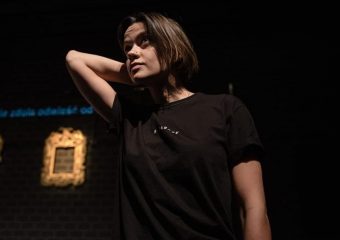
Kryścina Drobyš, an actress from the Kupałaucy troupe of former actors of the Janka Kupała National Academic Theater, who resigned in 2020 in protest, had to leave Belarus,
“At some point all power just left me. Over the last 490 days, I have given away everything I had but physical freedom. There is a ban on working with me at home. Some are afraid to cooperate, others just disappear. I do not condemn and am infinitely grateful to those who still remain nearby. Sometimes I feel like the country has chewed me and spit me out. A wise man once said, I work and live in Belarus, but not physically. I have neither anger nor disappointment. As always I have endless faith in people. I was, am and will be a Kupałaviec. I will continue to do what I can as long as there’s any strength left”.

Alaksiej Pałujan, Belarusian director, addressed the European Parliament,
“I am not asking you to save Belarusians, I am asking you to do what you promised yourselves. Belarusians have little strength and little time left, so I ask you not to forget the 10 million European people who live only 2 hours flight away from Brussels, so close and at the same time far away. If Europe really does protect human rights and freedom of speech, why are people still being killed in Belarusian prisons for these values?”
Sciapan Sturejka, Chairman of the Board of the Belarusian ICOMOS — community of experts in the field of heritage protection: restorers, museum workers, public activists,
“We first want to show that we have something to be proud of. Both in the past and nowadays, there are restoration projects — and I’m not exaggerating — of the world level.”
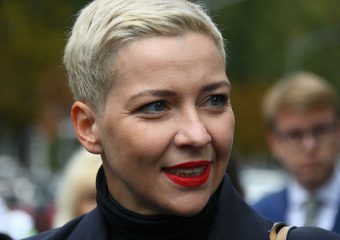
Maryja Kaleśnikava, a political prisoner activist and musician, mentioned the good in 2021,
“I find joy in every new day of my life. Even in the prison cell, my world is wonderful, dear to me people – even though they are far away, they are still close to me. My world is great, eternal art, music, books, good letters and love. I know for sure that this weird time will end. Can you imagine how happy we will be to see and hug each other?”
Alaksandr Čachoŭski, Executive Director of the Belarusian Council for Culture,
“The strength of Belarusians is that in moments of unity we can forget our grievances, be truly wise and achieve incredible results together. Together we can build a truly beautiful country, and culture will be an important part of its life.”
International Solidarity
The first ever Belarusian Culture Day in Lodz took place on December 18. Cult musician Lavon Volski and the Free Orchestra performed at the festival, the exhibition Letters to Political Prisoners was held as well as a meeting with Alaksiej Dzikavicki, the author of the book Onde written in the language of the Polesian region. Moreover, the festival hosted the premiere of the Through the Rails film about Belarusian students in Lodz.

A portraits exhibition about activists from Belarus and Ukraine opened near the town hall in Lviv on December 13. Among them is Maryja Kaleśnikava, a political prisoner, activist and musician. The portraits were made by young journalists, participants of the Ukrainian-Belarusian-German MediaLab Fem project.
Anton Šnip, a political prisoner, musician from the Irdorath band, got a “godfather” Julian Pahlke from the German Bundestag. European politicians take on symbolic responsibilities of godparents of Belarusian political prisoners within the framework of the #WeStandBYyou solidarity campaign organized by Libereco.
Political Prisoners’ Birthdays
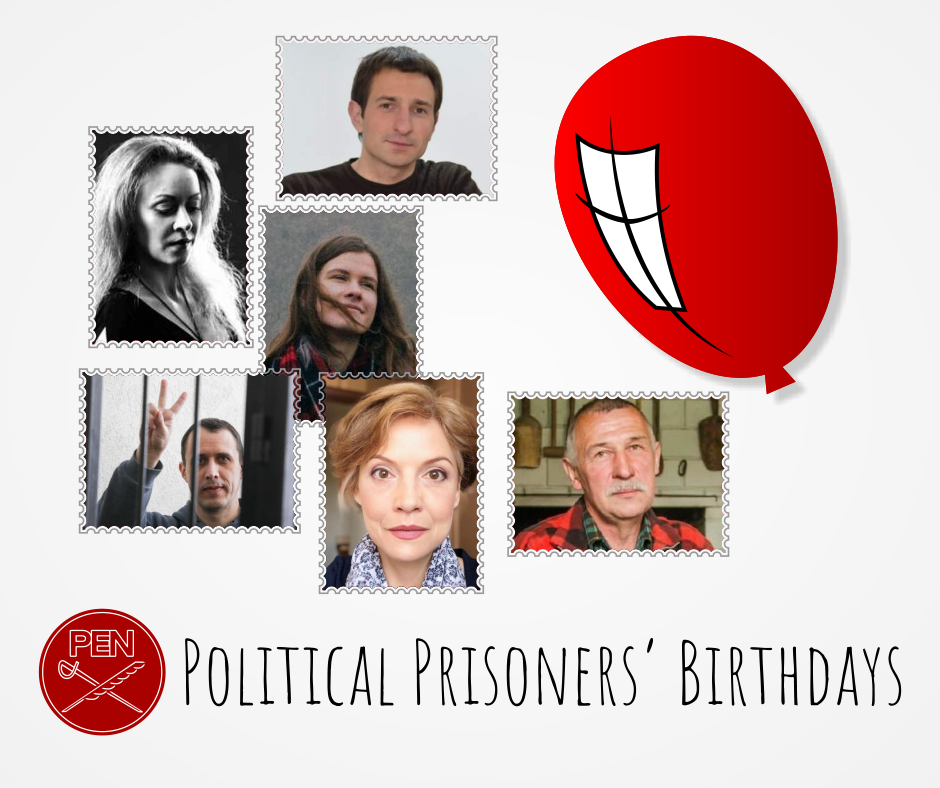 For December 12, 913 persons have been recognized as political prisoners in Belarus, and the number has been increasing steadily.
For December 12, 913 persons have been recognized as political prisoners in Belarus, and the number has been increasing steadily.
PEN Belarus, as an association of writers, is particularly concerned about the fate of cultural workers who have been unjustly imprisoned. In December, 6 political prisoners somehow involved in the process of cultural development of our country, will celebrate their birthdays behind bars. They are:
Ksienija Syramałot, poet and student (December 19); Alaksandr Hałkoŭski, Research Fellow at the Center for the Study of Belarusian Culture, Language and Literature of the National Academy of Sciences of Belarus (December 24); Mikoła Papieka, poet and beekeeper (December 28); Valeryja Kaściuhava, political scientist and analyst, editor and author of the Belarusian Yearbook (December 30), Pavieł Sieviaryniec, writer, co-founder of the Belarusian Christian Democracy party (December 30) and Mija Mitkievič, cultural manager (December 31).
Congratulate the political prisoners on their birthdays and the coming New Year with a postcard or letter (in Belarusian or Russian), which can be sent to the following addresses:
Ksienija Syramałot (Ксенія Сырамалот) and Mija Mitkievič (Мія Міткевіч): ПК №4. 246035, г. Гомель, вул. Антошкіна, 3;
Alaksandr Hałkoŭski (Аляксандр Галкоўскі): Папраўчая ўстанова адкрытага тыпу №9. 210034, г. Віцебск, вул. 3-я Чэпінская, 39;
Mikoła Papieka (Мікола Папека): Папраўчая ўстанова адкрытага тыпу №21. 247760, г. Мазыр, бульвар Юнацтва, 24;
Valeryja Kaściuhava (Валерыя Касцюгава): СІЗА-1. 220030, г. Мінск, вул. Валадарскага, 2;
Pavieł Sieviaryniec (Павел Севярынец): ПК №17. 213004, г. Шклоў, вул. 1-я Заводская, 8.
